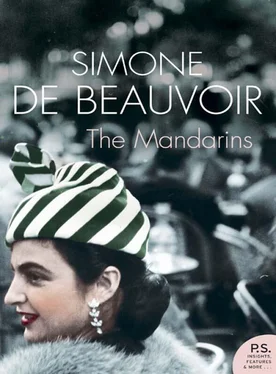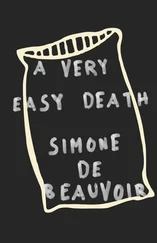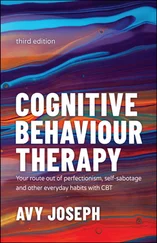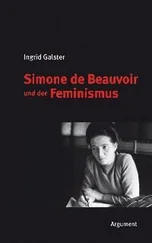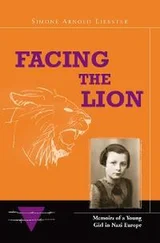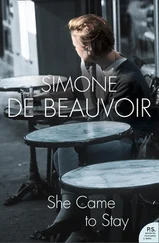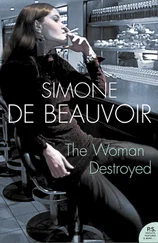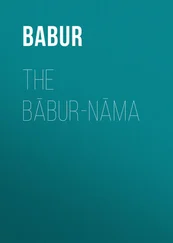1 ...6 7 8 10 11 12 ...49 But it wasn’t a fairy tale. I was the mermaid. God became an abstract idea in the depths of the sky, and one evening I blotted it out altogether. I’ve never felt sorry about losing God, for He had robbed me of the earth. But one day I came to realize that in renouncing Him I had condemned myself to death. I was fifteen, and I cried out in fear in the empty house. When I regained my senses, I asked myself, ‘What do other people do? What will I do? Will I always live with this fear inside me?’
From the moment I fell in love with Robert, I never again felt fear, of anything. I had only to speak his name and I would feel safe and secure: he’s working in the next room … I can get up and open the door … But I remain in bed; I’m not sure any more that he too doesn’t hear that little, gnawing sound. The earth splits open under our feet, and above our heads there is an infinite abyss. I no longer know who we are, nor what awaits us.
Suddenly, I sat bolt upright, opened my eyes. How could I possibly admit to myself that Robert was in danger? How could I ever bear it? He hadn’t told me anything really disturbing, nothing really new. I’m tired, I drank too much; just a little four-o’clock-in-the-morning frenzy. But who’s to decide at what hour one sees things clearest? Wasn’t it precisely when I believed myself most secure that I used to awaken in frenzies? And did I ever really believe it?
I can’t quite remember. We didn’t pay very much attention to ourselves, Robert and I. Only events counted: the flight from Paris, the return, the sirens, the bombs, the standing in lines, our reunions, the first issues of L’Espoir . A brown candle was sputtering in Paula’s apartment. With a couple of tin cans, we had built a stove in which we used to burn scraps of paper. The smoke would sting our eyes. Outside, puddles of blood, the whistling of bullets, the rumbling of artillery and tanks. In all of us, the same silence, the same hunger, the same hope. Every morning we would awaken asking ourselves the same question: Is the swastika still flying above the Senate? And in August, when we danced around blazing bonfires in the streets of Montparnasse, the same joy was in all our hearts. Then the autumn slipped by, and only a few hours ago, while we were completing the task of forgetting our dead by the lights of a Christmas tree, I realized that we were beginning to exist again each for himself. ‘Do you think it’s possible to bring back the past?’ Paula had asked. And Henri had said, ‘I feel like writing a light novel.’ They could once again speak in their normal voices, have their books published; they could argue again, organize political groups, make plans. That’s why they were all so happy. Well, almost all. Anyhow, this isn’t the time for me to be tormenting myself. Tonight’s a holiday, the first Christmas of peace, the last Christmas at Buchenwald, the last Christmas on earth, the first Christmas Diego hasn’t lived through. We were dancing, we were kissing each other around the tree sparkling with promises, and there were many, oh, so many, who weren’t there. No one had heard their last words; they were buried nowhere, swallowed up in emptiness. Two days after the liberation, Geneviève had placed her hand on a coffin. Was it the right one? Jacques’s body had never been found; a friend claimed he had buried his notebooks under a tree. What notebooks? Which tree? Sonia had asked for a sweater and silk stockings, and then she never again asked for anything. Where were Rachel’s bones and the lovely Rosa’s? In the arms that had so often clasped Rosa’s soft body, Lambert was now holding Nadine and Nadine was laughing the way she used to laugh when Diego held her in his arms. I looked down the row of Christmas trees reflected in the large mirrors and I thought, ‘There are the candles and the holly and the mistletoe they’ll never see. Everything that’s been given me, I stole from them,’ They were killed. Which one first? He or his father? Death didn’t enter into his plans. Did he know he was going to die? Did he rebel at the end or was he resigned to it? How will I ever know? And now that he’s dead, what difference does it make?
No, tombstone, no date of death. That’s why I’ve been groping for him through that life he loved so tumultuously. I hold out my hand towards the light switch and hesitantly withdraw it. In my desk is a picture of Diego, but even though I looked at it for hours I would never find again under that head of bushy hair, his real face of flesh and bones, that face in which everything was too large – his eyes, nose, ears, mouth. He was sitting in the study and Robert had asked, ‘What will you do if the Nazis win?’ And he had answered, ‘A Nazi victory doesn’t enter into my plans.’ His plans consisted of marrying Nadine and becoming a great poet. And he might have made it, too. At sixteen he already knew how to turn words into hot, glowing embers. He might have needed only a very little time – five years, four years; he lived his life so fast. Huddled with the others around the electric heater, I used to enjoy watching him devour Hegel or Kant; he would turn the pages as rapidly as if he were skimming through a murder mystery. And the fact of the matter is that he understood perfectly everything he read. Only his dreams were slow.
He had come one day to show Robert his poems, which was how we first got to know him. His father was a Spanish Jew who was stubbornly determined to continue making money in business even during the Occupation. He claimed the Spanish consul was protecting him. Diego reproached him for his luxurious style of living and his opulent blonde mistress; he preferred our austerity and spent almost all his time with us. Besides, he was at the hero-worshipping age; and he worshipped Robert. The moment he met Nadine, he impetuously gave her his love, his first, his only love. For the first time she had a feeling of being needed; it overwhelmed her. She immediately made room in the house for Diego and invited him to live with us. He had a great deal of affection for me as well, even though he found me much too rational. At night, Nadine insisted upon my tucking her in, the way I used to when she was a child. Lying next to her, he would ask me, ‘And me? Don’t I get a kiss?’ And I would kiss him. That year, we had been friends, my daughter and I. I was grateful to her for being capable of a sincere love and she was thankful to me for not opposing her deepest desire. Why should I have? She was only seventeen, but both Robert and I felt that it’s never too early to be happy.
And they knew how to be happy with so much fire! When we were together, I would rediscover my youth. ‘Come and have dinner with us. Come on, tonight’s a holiday,’ they would say, each one pulling me by an arm. Diego had filched a gold piece from his father. He preferred to take rather than to receive; it was the way of his generation. He had no trouble in changing his treasure into negotiable money and he spent the afternoon with Nadine on the roller coaster at an amusement park. When I met them on the street that evening, they were devouring a huge pie they had bought in the back room of a nearby bakery; it was their way of working up an appetite. They called up Robert and asked him to come along too, but he refused to leave his work. I went with them. Their faces were smeared with jam, their hands black with the grime of the fairground, and in their eyes was the arrogant look of happy criminals. The maître d’hôtel must have surely believed we had come there with the intention of squandering some ill-gotten gains. He showed us to a table far in the rear of the room and asked Diego with chilly politeness, ‘Monsieur has no jacket?’ Nadine threw her jacket over Diego’s threadbare sweater, revealing her own soiled, wrinkled blouse. But in spite of it all, we were served. They ordered ice cream first, and sardines, and then steaks, fried potatoes, oysters, and still more ice cream. ‘It all gets mixed up inside anyhow,’ they explained to me, stuffing the food into their mouths. They were so happy to be able for once to eat their fill! No matter how hard I tried to get enough food to go around, we were always more or less hungry. ‘Eat up,’ they said to me commandingly, as they slipped slices of pâté into their pockets for Robert.
Читать дальше
